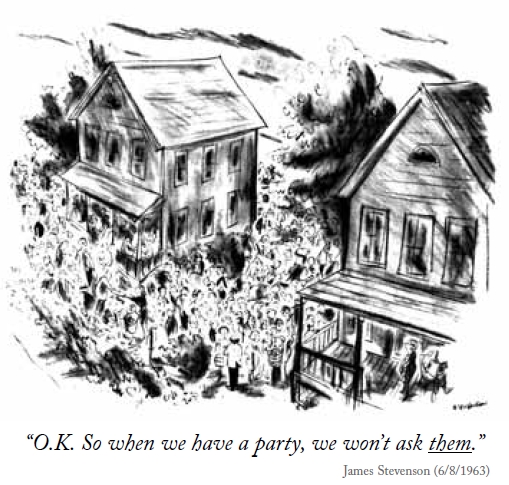Human desire
For many people the idea that they can carry on after they die is a profound hope. Amongst these are people: who have become famous and enjoy the adulation of their fellows; have achieved power and would like to continue to exercise it; have not achieved power, wealth or fame and would like this reversed; feel they have suffered at the hands of others and want an opportunity to correct this injustice; like to think that their enemies will burn in hell; like to believe that a dead person will be able to appreciate their efforts to perpetuate his or her memory; want to meet up with a dead relative or friend when they die; would like an opportunity to observe what will happen in future, perhaps to a child or grandchild; or simply want to be loved unconditionally.

So, it is fantasised Hitler is in eternal torment or that Gandhi, like other famously 'good' people, is in heaven (were he not a Hindu) - more accessible to the average dead person than he was in life; you can just wonder up and have a chat.
Some, who believe to one degree or another, are scared: of not being good enough; or that their investment in a better life to come may be in vain.
Living in fear is a form of enslavement. Those who live in fear are not free.
Others would not like their schadenfreude, in respect of those they dislike, to be misplaced - that they might not: 'rot in hell'.
Running through this fantasy is a cultural expectation that the Universe is, in some hidden way, just - that Devine retribution and Grace will put its blatant injustices and unconscionable sufferings to right in the end.
As Bob Dylan (Biblical scholar) says:
| For the loser now; Will be later to win;... The line it is drawn; The curse it is cast; The slow one now; Will later be fast; As the present now; Will later be past; The order is Rapidly fadin'. And the first one now; will later be last; for the times they are a-changin'. |
Thus, those ‘who chose their parents badly’ or suffer 'the slings and arrows of outrageous fortune' will somehow, sometime, be redeemed or compensated by a just universe; that there is a heavenly ‘Hays Code’ that monitors the script and ensures that evil is punished; good prevails and the balance is redressed.
But hope or desire are not the same as fact. The main impact of these profoundly held desires is to reinforce religious beliefs; to perpetuate fruitless activity aimed at protecting one’s immortal soul; and ultimately to enslave their adherents.
